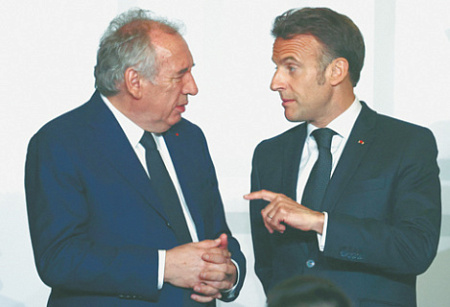
France is bracing for a significant political crisis as a left-wing coalition moves to file a no-confidence motion against the government of Prime Minister François Bayrou. The move, fueled by enduring public anger over a controversial pension reform, threatens to topple the government for what would be the third time in a year, plunging the nation into further political turmoil.
The immediate trigger for the confrontation was the collapse of negotiations between employers and unions over the pension reform. Speaking in the National Assembly, Socialist Party representative Boris Valla accused the Prime Minister of breaking his promise to allow parliament the final say after talks failed to produce a compromise. This perceived betrayal has provided the opposition with the ammunition to challenge the government’s legitimacy.
The pension reform has been a flashpoint in French politics since it was controversially enacted in 2023. The law, which raises the retirement age from 62 to 64 and extends the required period of social security contributions, was pushed through without a final parliamentary vote using a constitutional mechanism known as Article 49.3. This maneuver sparked widespread protests and nearly brought down the government earlier this year.
Despite the deep unpopularity of the measures, the government insists they are a bitter but necessary pill to swallow for the country’s economic health. France’s pension fund is facing a severe deficit, currently at €6.6 billion and projected to swell to nearly €30 billion by 2045. The reform is designed to stabilize the national budget, though officials concede it will not entirely resolve the long-term funding gap.
The fate of Bayrou’s government and President Emmanuel Macron’s agenda now hinges on a precarious political calculation. The left-wing alliance of Socialists, the hard-left La France Insoumise, and the Greens does not have enough votes in the National Assembly to succeed alone. Their only path to victory is to secure the support of the far-right National Rally, led by Marine Le Pen.
However, the government has been granted a temporary reprieve. The National Rally has announced it will not support this specific no-confidence motion, opting for a different strategy. The far-right party plans to withhold its fire until the autumn budget debates, where it intends to exert maximum pressure on the government over its core issues of energy and immigration. A no-confidence vote remains a threat if its demands are not met then.
Analysts view the left’s current motion as a strategic power play and a preview of the battle for the 2027 presidential election. With President Macron’s political authority seen to be waning, rival parties are already jockeying for position. The move allows the Socialists to demonstrate their opposition to the unpopular reform and compete with other left-wing factions for voter support. It serves as a potent warning shot to the government, even if its immediate chances of success are slim.
